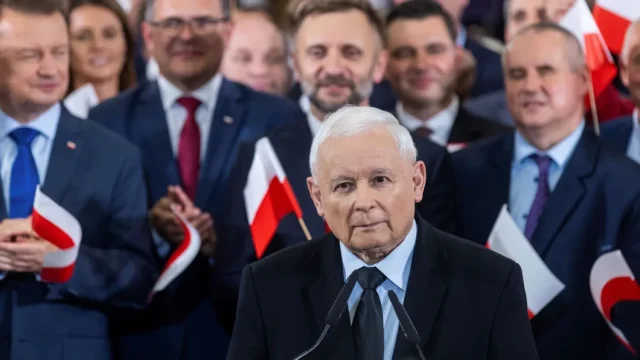
On Sunday, October 15, general elections were held in Poland. Since the 1989 parliamentary elections, following the fall of communism, there has not been such a high date in the country. About 29 million voters were called to vote. 72.9% of Poles went to the polls to express their preference. Analyzing the turnout by age groups, it is possible to note that the age group of citizens with the highest turnout is the one ranging from 50 to 59 years: 82.3% voted. Just below the range that goes from 40 to 49 with 78.5%. On the last step of the podium the thirty-year-old band with 72.3%. Excellent result also for the youngest, in fact, 68.8% of those who have 18 to 29 years have voted. Two percentage points more than those over 60 who stop at 67%.
Prawo i Sprawiedliwość (PIS), that is to say Law and Justice, is the party that has governed Poland since 2015 belonging to the MEP group ECR. Jaroslaw Kaczynski is the president of the party, while since 2017 Mateusz Jakub Morawiecki has been the President of the Council of Ministers expressed by PIS.
The main antagonist is Platforma Obywatelska (PO), ie Civic Coalition, a party that has as its leader Donald Tusk, former Polish Prime Minister from 2007 to 2014, former President of the European Council (office that he held from 2014 to 2019) and President of the European People’s Party. Third party for electoral weight is a possible ally of PO: Third Way, formation considered center-right. Fourth is the formation belonging to the social-democratic alliance — The Left (Lewica razem).
The other party that managed to overcome the barrier threshold is Konfederacja, a right-wing party. The latter, however, could be, in extrema ratio, a possible ally of Pis.
The results
Prospects look uncertain and it is not excluded that for more than a few months in Warsaw there will not be an agreement to govern. The president of the PIS, the most voted formation in this election, after the first exit polls gave his party 36.8%, commented: “It is the fourth victory, the third consecutive of our party, but we do not yet know if this victory will result in the government”. Jaroslaw Kaczynski himself added: “We will not allow Poland to be betrayed: either the government or the opposition will continue our project, we will defend our sovereignty anyway”.
Quite different is the reaction of Tusk, leader of the opposition, who, despite his party is not the favorite of the Polish voters, thanks to a game of alliances with Third Way and The Left, could end up governing the country. “This dark period is over, the populist reign of Law and Justice is over,” Tusk said last night. ” Poland won, democracy won,” he concluded.
What will happen is not yet clear. According to the Polish constitution, the president of the country, in this case Andrzej Duda, also a member of the PIS, has the duty to assign the exploratory mandate. It is not, however, specified to whom. For this reason, given the results of the elections there are two possibilities: either it is offered to Morawiecki as leader of the first party, giving the PIS the possibility of finding possible institutional supporters for its government, or is given to Tusk, leader of the second-most-voted party and who may already have the numbers on paper to form a majority.
The PIS leader has already made it clear that, under the former scenario, they are ready: “We will make an attempt to build a parliamentary majority and a stable government if the president gives us the task”.



 Subscribe
Subscribe